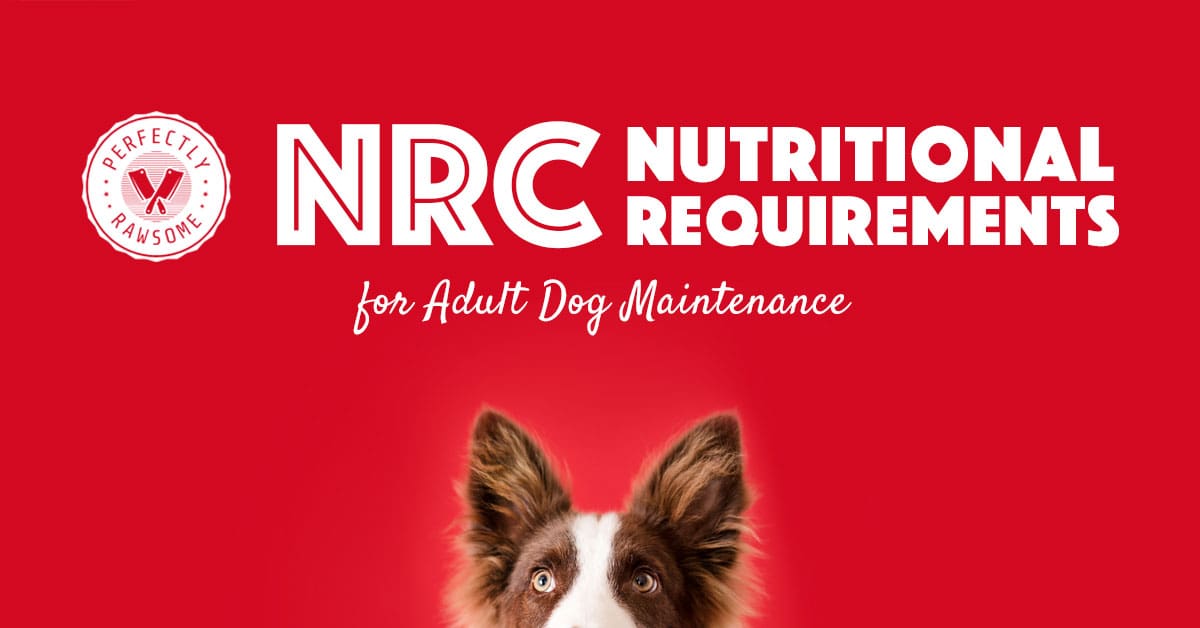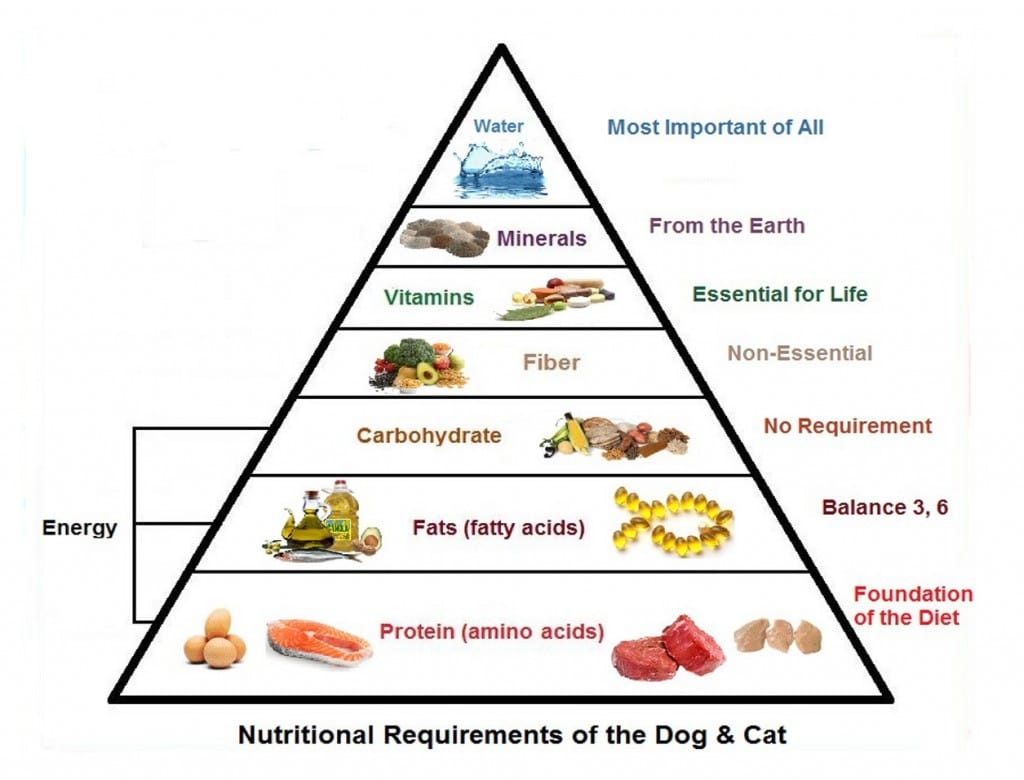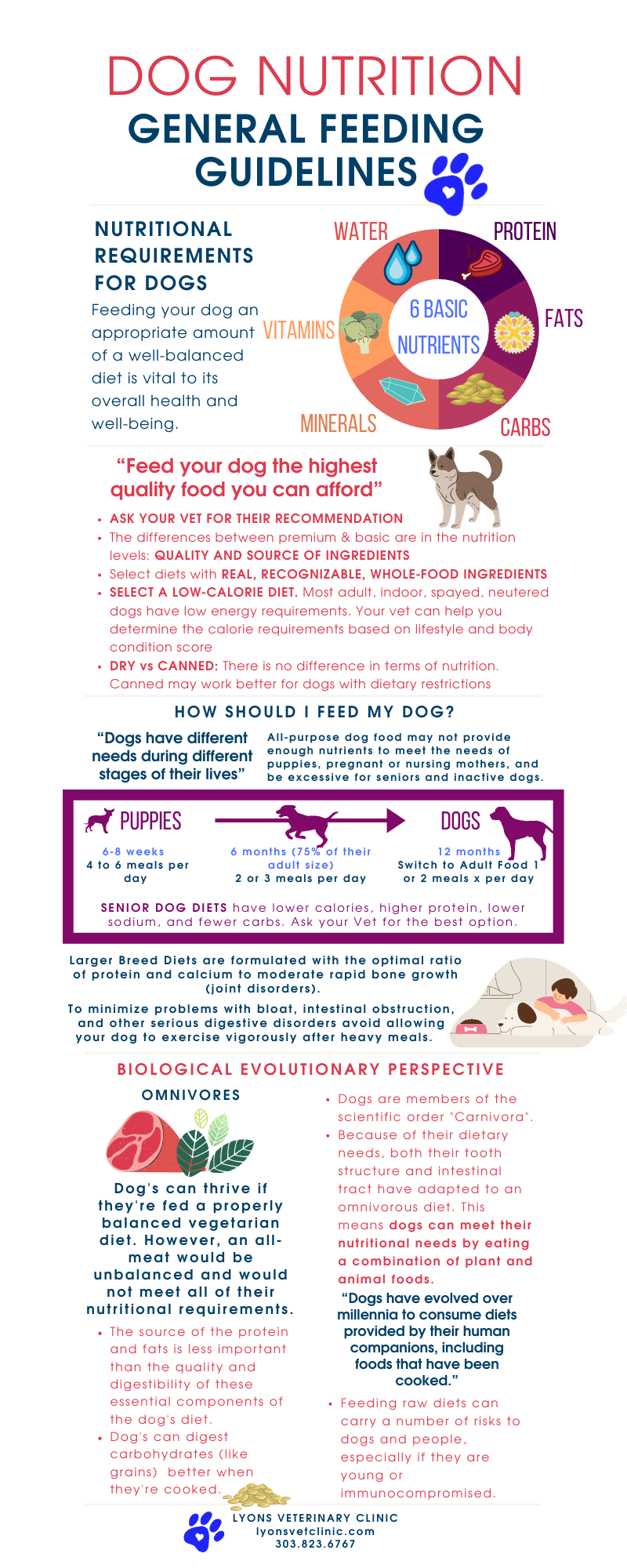Every dog needs proper nutrition to stay healthy. Understanding daily dog nutrition requirements is key for any dog owner.
Dogs, like humans, require a balanced diet to thrive. Their nutritional needs vary based on age, size, breed, and activity level. Providing the right mix of proteins, fats, vitamins, and minerals helps maintain their energy and overall well-being. A well-fed dog enjoys better health, a shiny coat, and improved mood.
With so many dog food options available, it can be hard to know what is best. This guide will help you understand how to meet your dog's daily nutrition needs. Learn what to feed your furry friend to keep them happy and healthy for years to come.
Introduction To Canine Nutrition
Understanding canine nutrition is vital for your dog's health. A well-balanced diet helps maintain energy levels. It also supports growth and overall well-being. Each dog has unique nutritional needs based on age, size, and activity level. Proper nutrition keeps your pet happy and healthy. Let's explore the key aspects of a balanced diet.
The Importance Of A Balanced Diet
A balanced diet provides essential nutrients. Dogs need proteins, carbohydrates, fats, vitamins, and minerals. Each nutrient plays a role in your dog's health.
Proteins are crucial for muscle growth. Carbohydrates offer energy for daily activities. Fats support skin health and coat shine. Vitamins and minerals help with various body functions.
Feeding your dog the right mix of these nutrients helps prevent health issues. Obesity, diabetes, and digestive problems can result from poor nutrition. A balanced diet enhances your dog's quality of life.
Common Misconceptions
Many people believe dogs can eat human food. While some foods are safe, many can be harmful. Foods like chocolate, grapes, and onions are toxic to dogs.
Another misconception is that all dog food is the same. Not all brands meet quality standards. Always check the label for quality ingredients.
Some owners think dogs only need meat. Dogs are omnivores and benefit from a variety of foods. A mix of protein, vegetables, and grains is best.
Essential Nutrients For Dogs
Every dog needs a balanced diet. Essential nutrients help dogs stay healthy. These nutrients support growth, energy, and overall well-being. Understanding these nutrients is key for every dog owner.
Proteins And Amino Acids
Proteins are vital for dogs. They build muscles and repair tissues. Proteins break down into amino acids. Dogs need 22 amino acids to thrive.
Some amino acids are essential. This means dogs cannot produce them. They must get them from food. Good protein sources include meat, fish, and eggs.
Fats: Types And Functions
Fats are another important nutrient. They provide energy and support cell growth. Healthy fats help absorb vitamins too. Omega-3 and Omega-6 fatty acids are essential.
These fats come from fish oil, flaxseed, and chicken fat. They promote a shiny coat and healthy skin. Fats also support brain health.
Carbohydrates: Energy Source
Carbohydrates are the main energy source for dogs. They come from grains, fruits, and vegetables. Carbs provide quick energy for daily activities.
Fiber is a type of carbohydrate. It aids digestion and keeps the gut healthy. Whole grains and vegetables are great fiber sources.
Vitamins And Minerals Essentials
Vitamins and minerals are crucial for health. They support many body functions. Vitamins A, D, E, and K are important. They help with vision, bone health, and immunity.
Minerals like calcium and phosphorus are also essential. They build strong bones and teeth. A balanced diet helps ensure dogs get all necessary vitamins and minerals.
Determining Your Dog's Dietary Needs
Understanding your dog's dietary needs is vital. Each dog has unique nutritional requirements. Factors like age, weight, and activity level play a role. A balanced diet keeps your dog healthy and happy.
Feeding your dog the right nutrients can prevent health issues. It also supports their energy levels. Knowing how to determine these needs is essential for every dog owner.
Factors Influencing Nutritional Requirements
Several factors affect your dog's nutritional needs. Their age is a major consideration. Puppies need more calories and nutrients than adult dogs. Senior dogs often require fewer calories but more fiber.
Weight also matters. Overweight dogs need a controlled diet. Active dogs require more calories to sustain their energy. Health conditions can change what your dog needs as well.
Tailoring Diet To Life Stage
Each life stage has specific dietary needs. Puppies grow rapidly and need high-quality protein. A diet rich in vitamins and minerals supports their development.
Adult dogs need a balanced diet to maintain health. Focus on protein, fat, and carbohydrates in the right amounts. Senior dogs benefit from lower calories and added fiber.
Consult your vet for personalized advice. They can help you create a diet plan based on your dog's life stage. This ensures your dog gets the right nutrition at every age.

Credit: perfectlyrawsome.com
Reading Dog Food Labels
Reading dog food labels is essential for every pet owner. These labels provide important information about what your dog eats. Understanding them helps you make better choices for your pet's health. It ensures your dog gets the right nutrients every day.
Deciphering Ingredients
The ingredients list is the first place to look. Ingredients are listed by weight. The first few ingredients are the most important. Look for high-quality protein sources. Chicken, beef, or fish should be at the top.
Avoid vague terms like “meat by-products.” These can include low-quality parts. Look for whole grains or vegetables as fillers. They provide fiber and nutrients. Avoid artificial colors and preservatives. Natural ingredients are always better for your dog.
Understanding Nutritional Value
Nutritional value is crucial for your dog's well-being. Check the guaranteed analysis on the label. This shows protein, fat, fiber, and moisture content. Protein is vital for muscle growth. Look for at least 20% protein in adult dog food.
Fat is also important. It provides energy and supports skin health. Aim for 8-15% fat content. Fiber helps digestion. A good range is 3-5%. Make sure the food meets AAFCO standards. This ensures it is complete and balanced for your dog's needs.
Home-cooked Vs. Commercial Diets
Choosing the right diet for your dog is important. You have two main options: home-cooked meals or commercial diets. Each has its own benefits and drawbacks. Understanding these can help you make the best choice for your pet.
Pros And Cons
Both home-cooked meals and commercial diets have their own pros and cons. Here’s a quick look:
| Diet Type | Pros | Cons |
|---|---|---|
| Home-Cooked |
|
|
| Commercial Diets |
|
|
Safety And Preparation Tips
Safety is key when preparing home-cooked meals. Follow these tips:
- Use fresh ingredients.
- Consult with a vet for balanced recipes.
- Cook meat thoroughly to kill bacteria.
- Avoid toxic foods like onions and chocolate.
- Store leftovers safely in the fridge.
For commercial diets, always check the label. Look for:
- High-quality protein sources
- No artificial preservatives
- Complete and balanced nutrition
Choosing the right diet affects your dog's health. Make an informed decision.
Supplements For Dogs
Supplements can help fill gaps in your dog's diet. They offer extra vitamins and minerals. Many dogs need more than regular food provides. Supplements can support health in various ways. They can improve energy and promote a shiny coat. Choosing the right supplements is key.
When Are Supplements Necessary?
Some dogs may need supplements due to specific health issues. Older dogs often require extra support. They may need joint supplements for mobility. Puppies might benefit from vitamins for growth.
Dogs on special diets may lack essential nutrients. Your vet can recommend supplements based on your dog's needs. Regular check-ups help ensure your dog stays healthy.
Risks Of Over-supplementation
Too many supplements can harm your dog. Over-supplementation can lead to toxicity. Some vitamins are fat-soluble and build up in the body. This can cause serious health problems.
Signs of over-supplementation include vomiting, diarrhea, and lethargy. Always follow the recommended dosages. Consult your vet before starting any new supplements.
Feeding Practices And Schedules
Feeding your dog properly is important for their health. A good schedule helps them grow strong. Consistency in feeding times builds good habits. It also helps you monitor their appetite.
Meal Frequency
Most dogs do well with two meals a day. Puppies need three to four meals daily. Smaller meals help their digestion. Older dogs may need fewer meals.
Stick to a regular schedule. Feed your dog at the same times each day. This creates a routine. Dogs feel secure with routine. It also helps prevent begging or scavenging.
Portion Control And Obesity Prevention
Portion control is key to dog health. Measure your dog’s food with a cup. Follow the feeding guidelines on the food package. Adjust portions based on your dog's weight and activity level.
Watch your dog’s body condition. Feel their ribs easily without too much fat. Avoid overfeeding. Obesity can lead to serious health problems.
Consult your vet for personalized advice. They can help you find the right portions. Keep your dog active with regular exercise. A balanced diet and exercise keep your dog healthy.

Credit: drbillspetnutrition.com
Myths And Facts In Dog Nutrition
Dog nutrition is full of myths. Many owners hear advice that is not true. These myths can harm your dog's health. Knowing the facts helps you make better choices.
Debunking Popular Myths
One common myth is that dogs can eat only meat. While dogs are carnivores, they need other nutrients. A balanced diet includes grains and vegetables.
Another myth is that table scraps are fine. Many human foods are unsafe for dogs. Foods like chocolate and onions can be toxic.
Some owners believe that grain-free diets are best. This is not always true. Dogs can digest grains well when cooked properly.
Evidence-based Nutritional Practices
Research shows that dogs thrive on a balanced diet. This includes proteins, fats, carbohydrates, vitamins, and minerals. Each nutrient plays an important role.
Protein supports muscle health. Fat provides energy and keeps the skin healthy. Carbohydrates offer fiber for digestion.
Consult your vet for specific dietary needs. Each dog is unique. Age, size, and health affect what they should eat.
Read dog food labels carefully. Look for quality ingredients. Avoid fillers like corn and soy.
Special Diets And Allergies
Dogs can have special dietary needs. Some may have food allergies. Others might need a specific diet for health reasons. Understanding these needs is vital for keeping your dog healthy.
Identifying the right food can help improve your dog's quality of life. It can also prevent serious health issues. Let's explore how to identify food allergies and create hypoallergenic diets.
Identifying Food Allergies
Food allergies in dogs can show up in various ways. Common signs include itching, skin irritations, and digestive issues. Sometimes, dogs may have ear infections or suffer from chronic diarrhea.
Keep a food diary for your dog. Write down what your dog eats and any symptoms that appear. This can help you spot patterns. Consult your vet if you notice any troubling signs.
Testing can help identify specific allergens. Your vet may suggest an elimination diet. This means removing certain foods and slowly adding them back to see what causes a reaction.
Formulating Hypoallergenic Diets
A hypoallergenic diet can help dogs with food allergies. These diets use ingredients that are less likely to cause reactions. Common choices include novel proteins, like duck or venison.
Grain-free options can also be beneficial. Some dogs may react to common grains like wheat or corn. Always check labels for hidden ingredients.
Consult your veterinarian before making changes. They can recommend the best diet for your dog’s needs. Regular check-ups will help track your dog's health as you adjust their diet.

Credit: www.lyonsvetclinic.com
Hydration And Your Dog's Health
Keeping your dog hydrated is vital for their health. Water is essential for every cell in their body. It supports digestion, circulation, and temperature regulation. Without enough water, dogs can face serious health issues.
Hydration affects energy levels and overall well-being. Dogs may not drink enough water on their own. Owners must ensure their furry friends have access to fresh water at all times.
The Role Of Water
Water plays a key role in your dog's health. It helps transport nutrients in the body. Proper hydration supports healthy joints and organs. It helps keep your dog’s skin and coat in good condition.
Water also aids in digestion. It helps break down food and absorb nutrients. Dogs need water for their kidneys to function properly. These organs filter waste from the blood.
Signs Of Dehydration
Recognizing signs of dehydration is important. Common signs include dry gums and excessive panting. A dog may also lose skin elasticity. You can test this by gently pulling the skin on their back.
If the skin does not return quickly, your dog may be dehydrated. Other signs include lethargy and lack of appetite. Monitor your dog's water intake closely. Early detection can prevent serious health issues.
Monitoring And Adjusting Your Dog's Diet
Keeping track of your dog's diet is important. Nutrition needs change over time. Regular monitoring helps ensure your dog stays healthy. Small adjustments can make a big difference.
Different factors affect your dog's diet. Age, weight, and activity level matter. Your dog's health condition can also play a role. Regular monitoring helps you notice these changes.
Regular Vet Check-ups
Regular visits to the vet are essential. Vets can assess your dog's health. They will check weight and overall condition. They can recommend dietary changes as needed.
Bring up any concerns during these visits. Ask about your dog’s nutrition. Your vet can guide you on the best food options. They may suggest specific brands or formulas.
Responding To Weight And Health Changes
Watch for changes in your dog's weight. Sudden weight gain or loss is a warning sign. Changes may signal a need for diet adjustment. Observe your dog's energy levels, too.
Health issues may also require dietary changes. Allergies or digestive problems can arise. Consult your vet if you notice these signs. They can help tailor your dog's diet for better health.
Frequently Asked Questions
What Are The Essential Nutrients For Dogs?
Dogs require a balanced diet consisting of proteins, fats, carbohydrates, vitamins, and minerals. Proteins build and repair tissues, while fats provide energy. Carbohydrates offer fiber for digestion. Additionally, vitamins and minerals support overall health, immune function, and bone development. Always consult a vet for specific nutrient needs.
How Much Food Should I Feed My Dog Daily?
Daily food intake varies by size, age, and activity level. Generally, dogs need about 2-3% of their body weight in food daily. Puppies and active dogs may require more, while senior dogs might need less. Always refer to the feeding guidelines on dog food packaging for accurate servings.
What Are The Signs Of A Balanced Diet In Dogs?
A balanced diet reflects in a dog's energy levels, coat condition, and weight. Healthy dogs usually have bright eyes, a shiny coat, and good muscle tone. Regular vet check-ups can help confirm nutritional adequacy. Watch for changes in behavior or health, as they may indicate dietary issues.
Can I Feed My Dog Human Food?
Some human foods are safe for dogs, while others are not. Cooked vegetables, lean meats, and certain fruits can be beneficial. However, avoid foods like chocolate, grapes, and onions, as they are toxic. Always introduce new foods gradually and consult your veterinarian before making changes.
Conclusion
Feeding your dog the right nutrients is essential. Balance is key for their health. Each dog has unique needs based on age, size, and activity. A proper diet helps maintain energy and vitality. Regular vet check-ups can guide you in choosing the best food.
Always pay attention to your dog’s weight and activity levels. A healthy diet leads to a happy dog. Take these steps to ensure your furry friend thrives. Your dog deserves the best nutrition every day.














